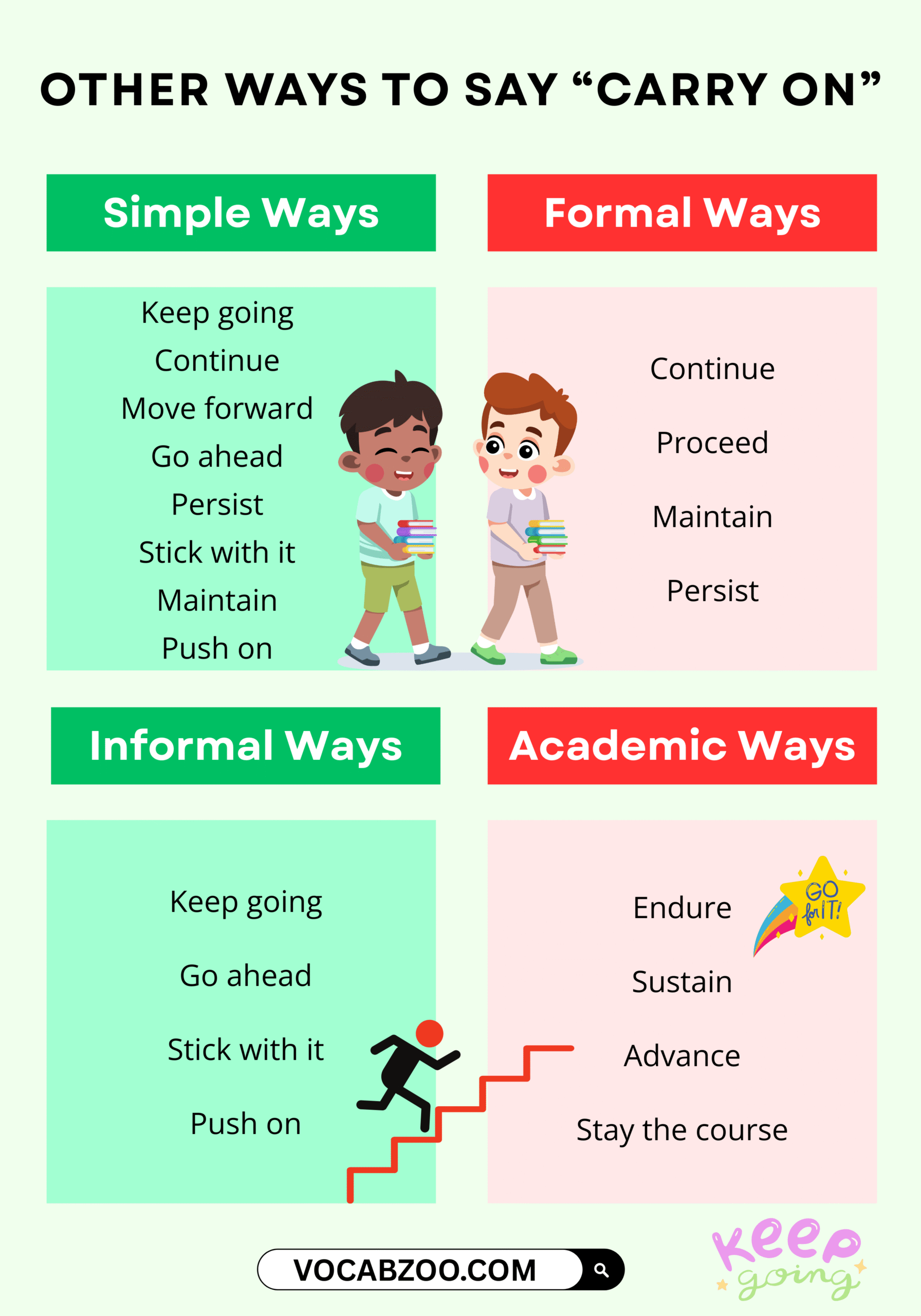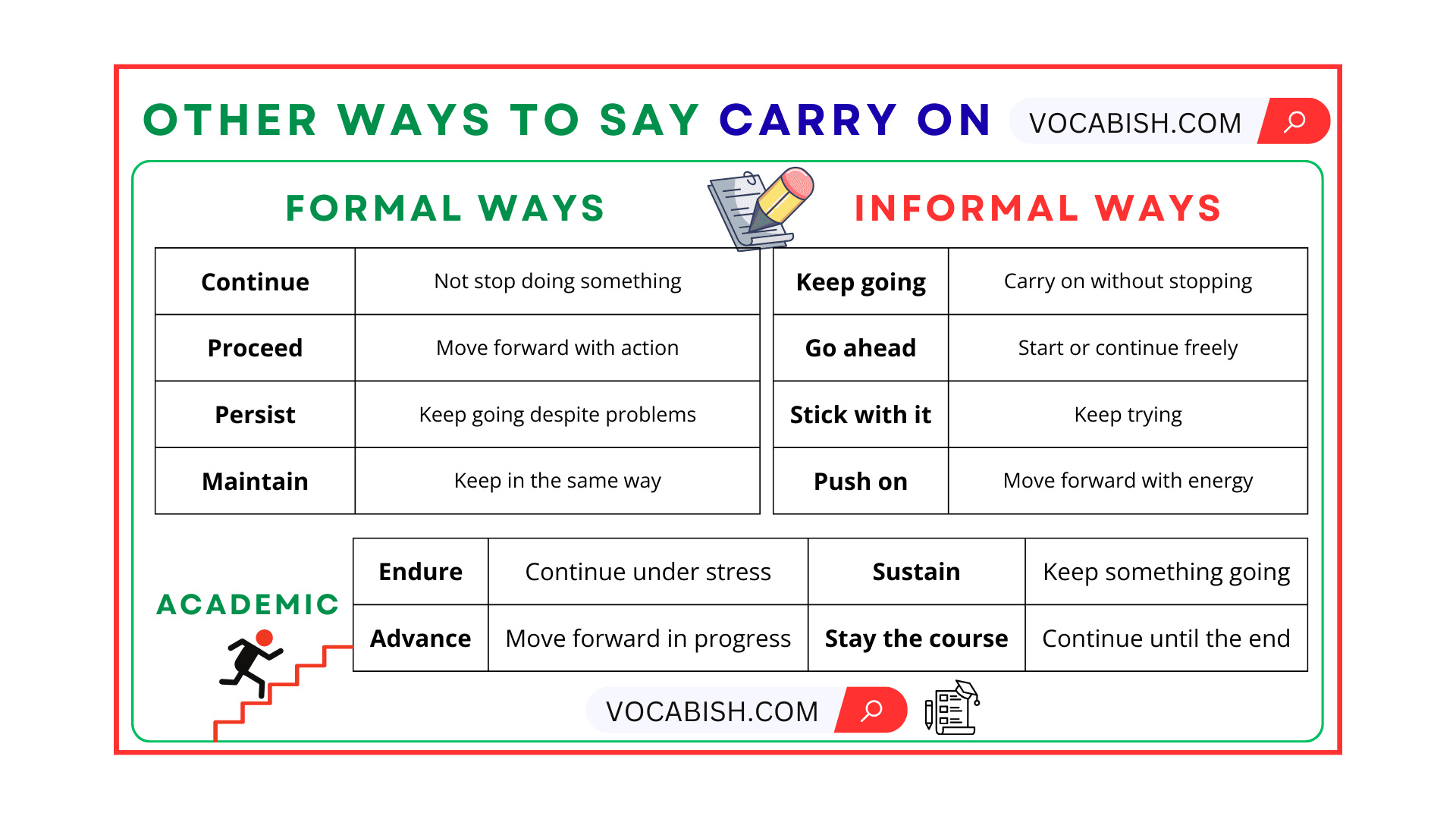In this blog post, we will learn different ways to say carry on in English. The phrase usually means to continue, not stop, and keep moving forward. But in different situations, there are other words and expressions we can use instead of carry on. Learning these alternatives will make your English sound richer, clearer, and more natural in both speaking and writing.
This article will explain:
- What does carry on mean?
- Different contexts where it is used.
- A full list of other ways to say carry on.
- Tables with formal, informal, and academic alternatives.
- Short FAQs to clear your doubts.
What is Carry On?
The phrase carry on means to continue an action or behavior without stopping.
Example: Please carry on with your work.
It can also mean to behave in an excited or noisy way.
Example: The kids were carrying on during the party.
So, carry on can be used in two main contexts:
- To continue something
- To behave in an emotional or noisy way
Simple Ways to Say Carry On
Here are some simple alternatives you can use:
- Keep going
- Continue
- Move forward
- Go ahead
- Persist
- Stick with it
- Maintain
- Push on
- Endure
- Stay the course

Formal Ways to Say Carry On
| Alternative Word/Phrase | Meaning | Example Sentence |
|---|---|---|
| Continue | Not stop doing something | You may continue your work. |
| Proceed | Move forward with action | Please proceed with the meeting. |
| Persist | Keep going despite problems | She persisted with her research. |
| Maintain | Keep in the same way | He maintained his efforts until success. |
Informal Ways to Say Carry On
| Alternative Word/Phrase | Meaning | Example Sentence |
|---|---|---|
| Keep going | Carry on without stopping | Keep going, you are doing great! |
| Go ahead | Start or continue freely | Go ahead with your idea. |
| Stick with it | Keep trying | Stick with it and don’t give up. |
| Push on | Move forward with energy | Let’s push on with the project. |
Academic Ways to Say Carry On
| Alternative Word/Phrase | Meaning | Example Sentence |
|---|---|---|
| Endure | Continue under stress | The experiment endured for 10 hours. |
| Sustain | Keep something going | The study sustained progress over time. |
| Advance | Move forward in progress | The research advanced steadily. |
| Stay the course | Continue until the end | Students must stay the course of study. |
Contexts of Using Carry On with Examples
Continue an activity
- Carry on with your homework.
- He carried on running despite the rain.
Encourage someone
- Carry on, you’re doing well.
- Please carry on with your story.
Behavior or reaction
- The children carried on loudly during the show.
- She carried on crying after the news.
FAQs
What does “carry on” mean in simple words?
It means to continue doing something.
Is “carry on” formal or informal?
It can be both. In formal situations, we often use “continue” or “proceed.”
Can “carry on” mean behaving badly?
Yes, in informal use it can mean making noise or showing strong emotion.
What is the best alternative to “carry on” in academic writing?
Words like “persist,” “endure,” or “sustain” are better in academic writing.
How do British and American English use “carry on”?
In British English, “carry on” is common for ‘continue.’ In American English, people more often use “continue” or “keep going.”
Read More

